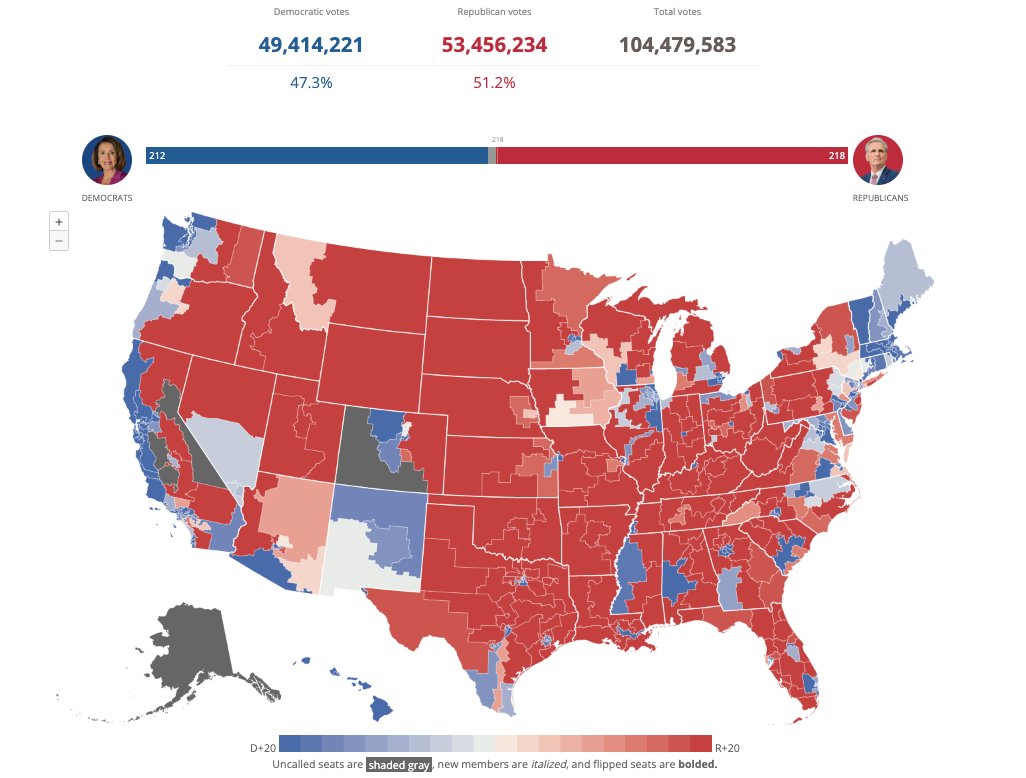Tangle - It's abortion, stupid.
|
Older messages
The FTX collapse, explained.
Thursday, November 17, 2022
And what it means for Democrats' mega donor Sam Bankman-Fried. The FTX collapse, explained. By Isaac Saul – 17 Nov 2022 – View online → Sam Bankman-Fried, the man behind the FTX drama. Image:
Trump announces presidential run.
Wednesday, November 16, 2022
He's running in 2024. What are his odds? Trump announces presidential run. By Isaac Saul – 16 Nov 2022 – View online → A screenshot of Trump's announcement to run for President. CNN / YouTube I
What the latest inflation numbers mean.
Tuesday, November 15, 2022
Plus, what do candidates do with leftover money? What the latest inflation numbers mean. By Isaac Saul – 15 Nov 2022 – View online → The latest inflation numbers could signal some good news for
Democrats win the Senate.
Monday, November 14, 2022
And Republicans look poised to win a narrow House majority. Democrats win the Senate. By Isaac Saul – 14 Nov 2022 – View online → Democrat Chuck Schumer will remain Senate majority leader. Photo:
Will Republicans really move on from Trump?
Friday, November 11, 2022
The mood has shifted on Trump. But will it matter to voters? Will Republicans really move on from Trump? By Isaac Saul – 11 Nov 2022 – View online → Photo by History in HD / Unsplash I'm Isaac Saul
You Might Also Like
☕ Great chains
Wednesday, January 15, 2025
Prologis looks to improve supply chain operations. January 15, 2025 View Online | Sign Up Retail Brew Presented By Bloomreach It's Wednesday, and we've been walking for miles inside the Javits
Pete Hegseth's confirmation hearing.
Wednesday, January 15, 2025
Hegseth's hearing had some fireworks, but he looks headed toward confirmation. Pete Hegseth's confirmation hearing. Hegseth's hearing had some fireworks, but he looks headed toward
Honourable Roulette
Wednesday, January 15, 2025
The Honourable Parts // The Story Of Russian Roulette Honourable Roulette By Kaamya Sharma • 15 Jan 2025 View in browser View in browser The Honourable Parts Spencer Wright | Scope Of Work | 6th
📬 No. 62 | What I learned about newsletters in 2024
Wednesday, January 15, 2025
“I love that I get the chance to ask questions and keep learning. Here are a few big takeaways.” ͏ ͏ ͏ ͏ ͏ ͏ ͏ ͏ ͏ ͏ ͏ ͏ ͏ ͏ ͏ ͏ ͏ ͏ ͏ ͏ ͏ ͏ ͏ ͏ ͏ ͏
⚡️ ‘Skeleton Crew’ Answers Its Biggest Mystery
Wednesday, January 15, 2025
Plus: There's no good way to adapt any more Neil Gaiman stories. Inverse Daily The twist in this Star Wars show was, that there was no twist. Lucasfilm TV Shows 'Skeleton Crew' Finally
I Tried All The New Eye-Shadow Sticks
Wednesday, January 15, 2025
And a couple classics. The Strategist Beauty Brief January 15, 2025 Every product is independently selected by editors. If you buy something through our links, New York may earn an affiliate commission
How To Stop Worrying And Learn To Love Lynn's National IQ Estimates
Wednesday, January 15, 2025
... ͏ ͏ ͏ ͏ ͏ ͏ ͏ ͏ ͏ ͏ ͏ ͏ ͏ ͏ ͏ ͏ ͏ ͏ ͏ ͏ ͏ ͏ ͏ ͏ ͏ ͏ ͏ ͏ ͏ ͏ ͏ ͏ ͏ ͏ ͏ ͏ ͏ ͏ ͏ ͏ ͏ ͏ ͏ ͏ ͏ ͏ ͏ ͏ ͏ ͏ ͏ ͏ ͏ ͏ ͏ ͏ ͏ ͏ ͏ ͏ ͏ ͏ ͏ ͏ ͏ ͏ ͏ ͏ ͏ ͏ ͏ ͏ ͏ ͏ ͏ ͏ ͏ ͏ ͏ ͏ ͏ ͏ ͏ ͏ ͏ ͏ ͏ ͏ ͏ ͏ ͏ ͏ ͏ ͏ ͏ ͏ ͏ ͏ ͏
☕ Olympic recycling
Wednesday, January 15, 2025
Reusing wi-fi equipment from the Paris games. January 15, 2025 View Online | Sign Up Tech Brew It's Wednesday. After the medals are awarded and the athletes go home, what happens to all the stuff
Ozempic has entered the chat
Wednesday, January 15, 2025
Plus: Hegseth's hearing, a huge religious rite, and confidence. January 15, 2025 View in browser Jolie Myers is the managing editor of the Vox Media Podcast Network. Her work often focuses on
How a major bank cheated its customers out of $2 billion, according to a new federal lawsuit
Wednesday, January 15, 2025
An explosive new lawsuit filed by the Consumer Financial Protection Bureau (CFPB) alleges that Capital One bank cheated its customers out of $2 billion. ͏ ͏ ͏ ͏ ͏ ͏ ͏ ͏ ͏ ͏ ͏ ͏ ͏ ͏ ͏ ͏ ͏ ͏ ͏ ͏ ͏ ͏ ͏ ͏

